"White labels" - the anonymous, sexy, vinyl records much loved by DJs and other lovers of turntables. I am reminded of my dear friend SC, whose house is as filled with white-label disks for his turntables as our house is filled with pu'ercha. I think his hobby is (significantly) more expensive than mine, and so I feel better about myself already.
By analogy, a pu'ercha "white label" is a prototype, thrown together at a whim, without the pomp and circumstance of a fully-branded product. Perhaps it is edgier, more immediate, more vital, more experimental.
Perhaps.
One of my two white-labels is a 2006 "Yiwu Laochencha" [Yiwu aged-tea], bought for a piffled 19 RMB ($3) from 普洱茶人家 [pu'ercha renjia, or Pu'ercha Family] via Taobao. This entire cake costs less than a pint of beer, and is pictured in all its anonymous glory in the above photograph.
The second white-label that I've been drinking is the 2010 Hailanghao "Suibian", which means "casual" or "do as you wish". Again, it was a very cheap cake, costing just $19 at Yunnan Sourcing. Scott translated it as being "as you like", which is one word away from being a brilliant Shakespearian allusion. The leaves of the Hailanghao are pictured below. The small leaves are heavily compressed, and certainly look unassuming.
Hailanghao
The Laochencha is shown below. For $3, it looks really rather good. Amusingly, it has a blank space where a neifei [inner ticket] was once located. It could be that these are a knock-off batch from elsewhere, stripped down to the bare essentials for resale. Some of the leaves look noticeably red.
Laochencha
This colour continues in the cup, which is a solid orange. It is gently, slightly woody and sweet, and yet clean and smooth. There is a hint of a kuwei, as if the producers decided to retain a little energy. It is a small, humble tea - everything is in miniature, but it is fair despite its tinyness.
I find it rather fun, being clean and ever-so-slightly cooling. There is a flat maltiness, as one would expect from a reddened tea, but there are other components: a straw-like Yiwuesque note, perhaps even a very few leaves of quality, giving a tingling sensation. It is a fun little blend, but, ultimately, my teapot gets a lot of it poured over his skin, as the simplicity and monotony of the tea begin to wear me down.
Laochencha
Meanwhile, the Hailanghao exhibits a power and an entertaining fruitiness that is beyond its price-tag. The soup is slightly watery, slightly cloudy, but there is a long-lasting huigan. It is not immensely complex, bit it is clean and powerful - much moreso than similar blends offered by mainstream tea companies.
In fact, this inexpensive blend has given me a better tea session that several of the single-mountain samples that I have recently bought from Yunnan Sourcing.
Perhaps the Hailanghao, like the Laochencha, expires quickly: by the sixth infusion, the former is down to being a sweet, slightly citric water, although the clean kuwei [good bitterness] is mouthwatering.
Neither cake tempts me to drink more, but they are both cheap and cheerful - the Laochencha is absurdly cheap, and would make decent filler for an office tea, while the Hailanghao has more power than you might expect from a cheap cake.

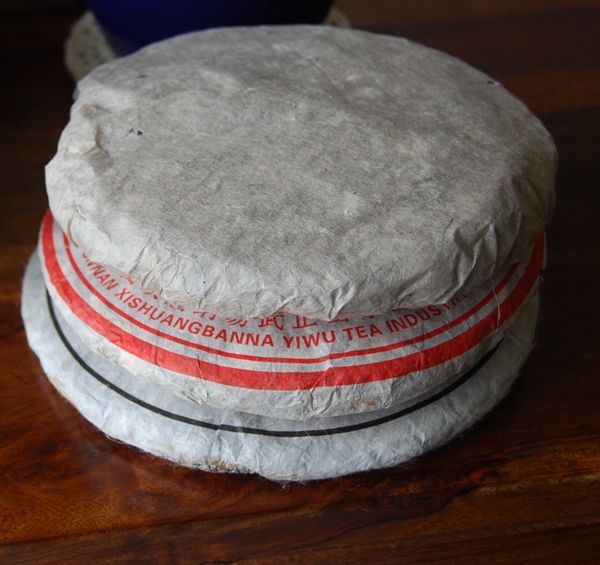
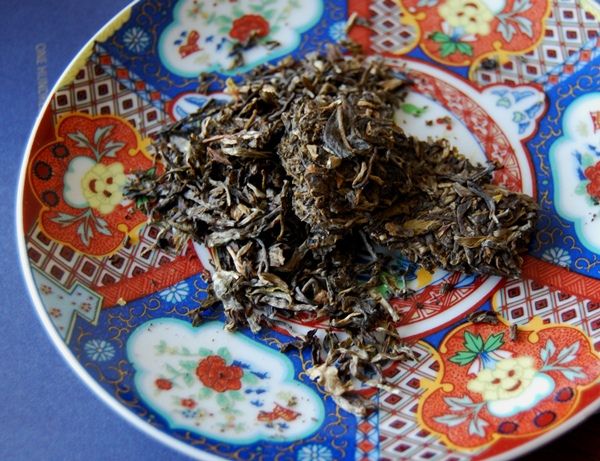
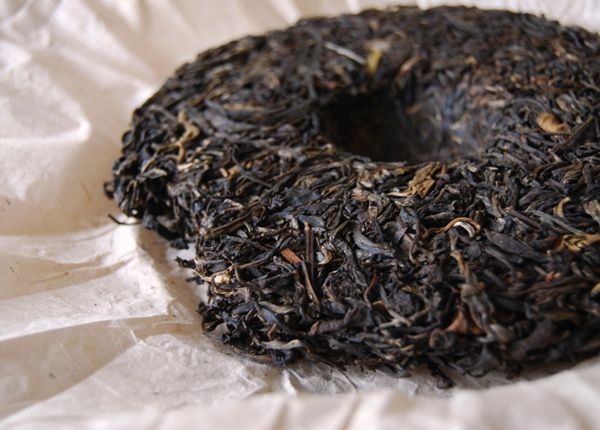
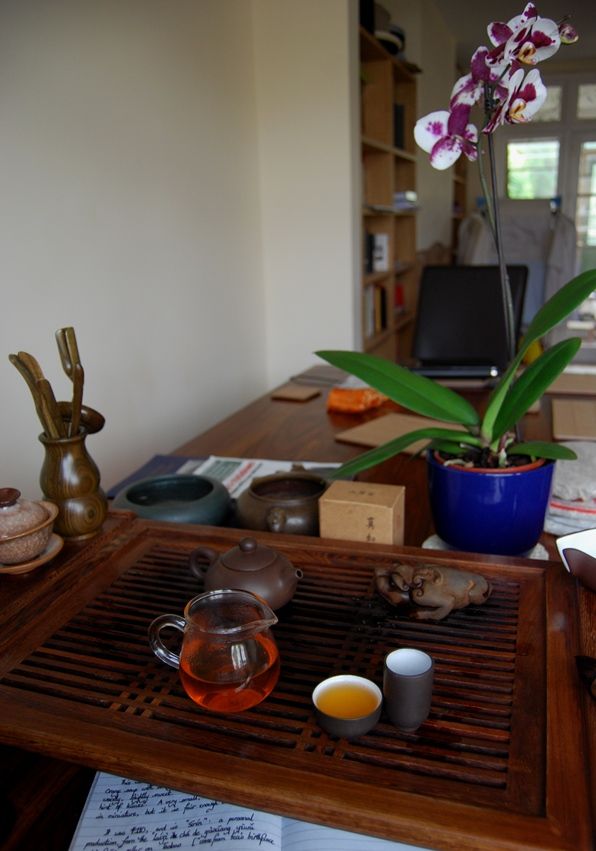
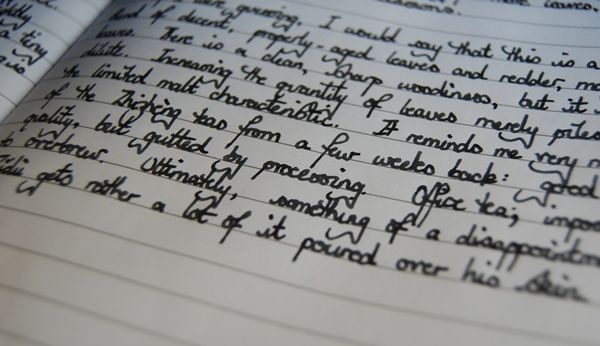
No comments:
Post a Comment
(and thanks)